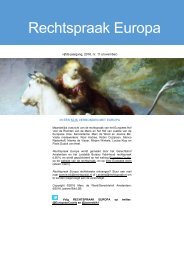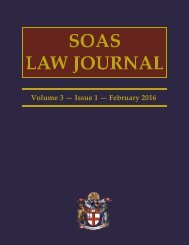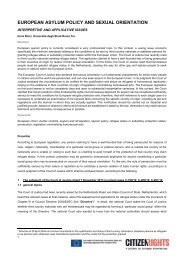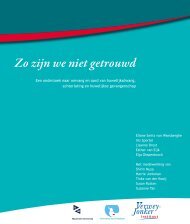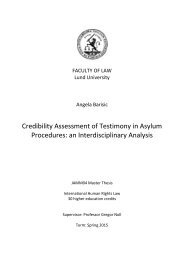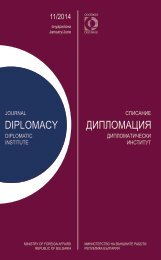AEMI
AEMI-2016-web
AEMI-2016-web
You also want an ePaper? Increase the reach of your titles
YUMPU automatically turns print PDFs into web optimized ePapers that Google loves.
26 <strong>AEMI</strong> JOURNAL 2015<br />
can be translated into hate speech and<br />
discriminatory actions. All of these different<br />
forms of xenophobia are expected<br />
to be prevented by tolerance. In 1996,<br />
the General Assembly of the United<br />
Nations named November 16 as the<br />
international day of tolerance. In Slovenian<br />
schools, students are taught to be<br />
tolerant of others (see e.g. Šlibar 2006;<br />
Sardoč 2009). But pupils who are not<br />
ethnic Slovenians do not want to be<br />
tolerated by their teachers and schoolmates<br />
for their supposed differences;<br />
they want to be respected and liked (cf.<br />
Žitnik 2005a). In this sense, the meaning<br />
of tolerance in connection with<br />
immigrants and minorities becomes<br />
controversial. One must ask what in<br />
fact tolerance is and whether a tolerant<br />
attitude to the other really contributes<br />
to equality, productive coexistence, and<br />
intercultural awareness.<br />
In addition to the many Slovenian<br />
writers who have written about ethnic,<br />
cultural, and religious tolerance (among<br />
others Kuzmanič 1994; 2004; Kovačič<br />
2005; Širec 1997; Leskošek, 2005;<br />
Klepec 2007), many foreign authors,<br />
among them Voltaire (1988), have<br />
written on this subject. The most successful<br />
Slovenian emigrant writer and<br />
social critic, Louis Adamic, one of the<br />
founding fathers of American multiculturalism,<br />
wrote on many occasions that<br />
the tolerance of the national majority to<br />
immigrants is really only hidden contempt,<br />
a subtler form of intolerance that<br />
implies the superiority of the national<br />
majority. Tolerance is ‘a veneer for intolerance,<br />
which cracks easily’ (Adamic<br />
1940: 297). On other occasions (for example<br />
Adamic 1946: 7), he wrote that<br />
those who are on the receiving end of<br />
tolerance begin to feel ‘vaguely defensive’.<br />
Consequently tolerance leads to<br />
‘negative stands and attitudes which<br />
preclude vital communication with others<br />
… and there they are, there we all<br />
are, separated from each other by invisible<br />
chasms.’<br />
A number of other social critics have<br />
thought much the same thing. Graf<br />
(2004: 16) wrote that: “No longer does<br />
it suffice to assume an attitude of tolerance<br />
that decides from a national superior<br />
point of view how much of the<br />
foreign may be accepted.” To tolerate is<br />
to take the authority to decide whether<br />
the legitimate rights of others may be respected<br />
or not. As if it were only because<br />
we allow others the colour of their skin,<br />
their language, their faith, habits and<br />
values, their way of life, that they can<br />
keep them. They can still feel a bit guilty<br />
about it, but we are generous enough to<br />
allow it. Or in Goethe’s words (Goethe<br />
1897: 221): “Dulden heißt beleidigen.” –<br />
“To tolerate is to insult.” This is why I<br />
prefer to use the word respect instead of<br />
the noun tolerance or the verb tolerate.<br />
Conclusion<br />
Our perception of certain English terms<br />
very often depends on the specific cultural<br />
background and local circumstances<br />
that are vividly reflected in the<br />
vocabulary of our mother tongue. On<br />
the other hand, it also depends on the<br />
level of our intercultural awareness. As<br />
Meta Grosman (2004:25) puts it,<br />
… all encounters wIth other/foreign<br />
cultures, whether or not we encounter<br />
them in translation, which is to<br />
say partially adapted to our own/<br />
domestic culture, or in the original,



